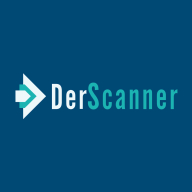

SonarQube and DerScanner compete in code quality and security analysis. SonarQube leads in pricing and support, while DerScanner excels in feature offerings.
Features: SonarQube is recognized for its extensive plugin ecosystem, robust reporting, and integrated tools. DerScanner excels in advanced vulnerability scanning, thorough binary file analysis, and focused security assessments.
Ease of Deployment and Customer Service: SonarQube offers straightforward on-premise deployment, extensive documentation, and reliable support channels. DerScanner provides deployment flexibility with cloud solutions and variability in customer service response, suiting environments requiring customization.
Pricing and ROI: SonarQube has competitive setup costs with potential for strong long-term ROI, suitable for comprehensive code maintenance. DerScanner's higher initial costs reflect its advanced security focus, providing value through targeted vulnerability detection for organizations emphasizing security investment.
| Product | Market Share (%) |
|---|---|
| SonarQube | 17.9% |
| DerScanner | 0.6% |
| Other | 81.5% |
| Company Size | Count |
|---|---|
| Small Business | 41 |
| Midsize Enterprise | 24 |
| Large Enterprise | 79 |
DerScanner is a convenient and easy-to-use officially CWE-Compatible solution that combines the capabilities of static (SAST), dynamic (DAST) and software composition analysis (SCA) in a single interface.
It helps provide more thorough control over the security of applications and information systems and check both your own and open source code using one solution.
CWE-Compatible Tool
Recognized by Forrester among SAST vendors
SonarQube provides comprehensive support for multi-language development, custom coding rules, and quality gates, integrated seamlessly into CI/CD pipelines. It empowers teams with clear insights through intuitive dashboards, identifying vulnerabilities, code smells, and technical debt.
SonarQube is renowned for its extensive capabilities in static code analysis, making it an invaluable tool for maintaining code quality. By fully integrating into development processes, it allows organizations to manage vulnerabilities and ensure compliance with coding standards. Its extensive community and open-source roots contribute to its accessibility, while robust dashboards facilitate code quality monitoring. Despite its strengths, feedback suggests enhancing analysis speed, better integration with DevOps tools, and refining the user interface. Users also point to the need for handling false positives effectively and expanding on AI-based features for dynamic code analysis.
What are SonarQube's main features?In industries like finance and healthcare, SonarQube aids in obtaining regulatory compliance through rigorous code quality assessments. It is implemented to enhance cybersecurity by identifying potential vulnerabilities, while ensuring code meets the stringent standards demanded in these fields. As part of a broader development ecosystem, its integration in CI/CD pipelines ensures smooth and efficient software delivery, catering to phases from code inception to deployment, effectively supporting large-scale and critical software applications.
We monitor all Application Security Tools reviews to prevent fraudulent reviews and keep review quality high. We do not post reviews by company employees or direct competitors. We validate each review for authenticity via cross-reference with LinkedIn, and personal follow-up with the reviewer when necessary.